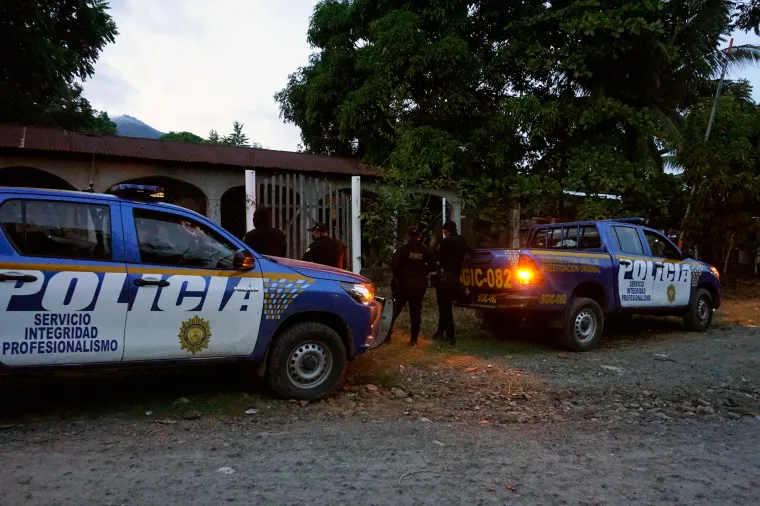New York, October 28, 2021 — Guatemalan authorities must stop harassing journalists covering protests and ensure the independent press can safely cover events of national interest without interference, the Committee to Protect Journalists said today.
Since October 22, police officers have confronted protesters in El Estor, in the eastern coastal department of Izabal, who have demonstrated against mining operations at a local nickel processing plant, according to news reports.
Police have raided at least one news outlet and the homes of at least two journalists in connection to those protests, and have harassed members of the press covering the demonstrations, according to news reports and journalists who spoke with CPJ.
“Guatemalan police must show that they are able and willing to distinguish between protesters and the press, and cease harassing journalists for covering demonstrations in El Estor,” said CPJ Latin America and the Caribbean Program Coordinator Natalie Southwick. “Authorities must recognize that journalists have a right to cover demonstrations and ensure they are able to do so safely, instead of treating them like criminals simply for doing their jobs.”
In an October 22 video published on Twitter by the independent digital outlet Prensa Comunitaria, police can be seen ordering journalists not to film them and asking them to leave the scene. In another video from that day, Prensa Comunitaria reporter Carlos Choc said police officers had shoved him and confiscated his phone and microphone while he attempted to cover the demonstrations.
A Prensa Comunitaria reporter who spoke with CPJ on the condition of anonymity, citing fear of retribution and ongoing security concerns for the team in El Estor, said that police had returned Choc’s phone as of today but not his microphone.
On October 24, police officers searched the radio station Xyaab’ Tzuultaq’a, which has also covered the demonstrations, according to news reports and the Guatemalan Federation of Radio Schools, a national group of community radio outlets. Xyaab’ Tzuultaq’a Director Robin Macloni told CPJ via messaging app that police spent about 30 minutes inside the office, questioned one of their staff members, and then left without confiscating anything.
On October 26, at about 8 a.m., police officers and officials from the Public Ministry searched the home of Prensa Comunitaria reporter Juan Bautista Xol in El Estor, and accused him of participating in the protests, according to an interview the journalist gave following the raid, as well as the Prensa Comunitaria reporter who spoke to CPJ. The raid lasted more than two hours, during which Bautista was not allowed to leave the premises, according to those sources.
Bautista said in that interview that he had no role in the protests and only covered them as a journalist. He is not facing criminal charges but officials from the Public Ministry confiscated his cell phone, according to that interview and a statement from the Guatemalan Human Rights Ombudsman’s Office.
Also on October 26, police officers searched Choc’s home in his absence, according to news reports and Prensa Comunitaria. Authorities did not seize anything from the home or detain anyone, according to those sources.
Jorge Aguilar, a spokesperson for the Guatemalan National Police in El Estor, said in a statement that the raids were conducted “to locate people connected with attacks against police officers during the demonstrations” but that there were no arrests.
CPJ has previously documented harassment and attempts to intimidate Choc, including a robbery at his home in April 2020 and a criminal case against him and another journalist for documenting the death of a fisherman during a demonstration.
CPJ emailed the Public Ministry and Guatemalan National Police for comment; the Government Ministry, which oversees the police, replied with an automated response saying that an official would reply within 10 days, and the Public Ministry did not respond.
